 |
||||||||||||||||||||||||||||||||||||||||||||||||||||||||||||||||||||||||||||||||||||||||||||||||||||||||||||||||||||||||||||||||||||||||||||||||||||||||||||||||||||||||||||||||||||||||||||||||||||||||||||||||||||||||||||||||||||||||||||||||||||||||||||||||||||||||||||||||||||||||||||||||
 |
Follow NECE on twitter and linkedIn. | |||||
| NECE NEWS | ||||||
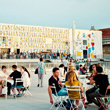 |
NECE Conference 2018: Marseille calling
NECE 2018 will be held in Marseille in May 2018. For many reasons we have come to the conclusion that a new date for NECE (away from November to May) will be beneficial for organisers and participants alike. And we will have more time this year to take a fresh look at NECE’s potential and redesign aspects of our work and the involvement of the NECE 'community' in planning and implementing the conference. Given the instability and uncertainties we are facing in European and international politics, the importance of France as a key player in Europe and the still undiscovered potential and creativity of French citizenship initiatives we are sure that the conference will attract experts, practitioners and activists not only from Europe but also from the southern side of the Mediterranean with its specials bonds to Marseille. We will try to find a free slot in a wonderful location: Friche La Belle de Mai, is a hub of cultural and artistic activity and a public space embedded in urban Marseille – hard to imagine a better place for a NECE event. |
|||||
 |
Liberté, Égalité, LePen Adé!
Just hours before sending out our newsletter we have been receiving the results of the second round of the presidential elections in France: Emmanuel Macron will be the next president of France with a clear majority. Congratulations to our partners and friends in France, in particular to our colleagues from Vote&Vous! Latest comments and analysis on Eurotopics the daily multilingual newsletter on international and European politics here |
|||||
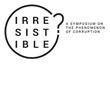 |
IRRESISTIBLE? A symposium on the phenomenon of CORRUPTION
The IRRESISTIBLE? project takes a multi-perspective view of corruption, focusing on its political, social, cultural, historical, religious, artistic, philosophical, civic and journalism-related dimensions. Scheduled to take place from 16-18 June 2017 in Berlin (Germany), the symposium will introduce the topic and offer the opportunity for participants to engage with experts involved in corruption research and the fight against corruption. IRRESISTIBLE? is a cooperative project sponsored by the Federal Agency for Civic Education (bpb) and the Goethe Institute Ukraine. It also receives support from the German Federal Foreign Office. |
|||||
 |
Obituary: Benjamin Barber (1939 – 2017)
Benjamin Barber died on April 24, 2017 in his home in New York City. |
|||||
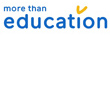 |
Be a partner of More Than Education, a European Citizens’ initiative
The Initiative “More Than Education” was launched by a team of young European citizens and registered by the European Commission on the 6th of October 2016. Now, the European citizens’ initiative invites NECE players to collaborate. |
|||||
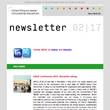 |
Wanted: Your contribution to the NECE Newsletter!
You’re looking to get involved in citizenship education in Europe or North Africa? You already initiate projects aimed at promoting democratic values and tolerance in your country or region? You think NECE is right or wrong about a specific issue, and want to start a debate? Tell us about it! Here at the NECE Newsletter we love hearing from you! Send your ideas to: nece@lab-concepts.de |
|||||
| VOICES OF EUROPEANS | ||||||
|
Welcome to a new section of the newsletter, where our aim is to give European intellectuals and practitioners of Citizenship education a voice. What’s your assessment of the current situation in Europe? What effects are political developments having on citizenship education? In this issue, we’ve decided to get the ball rolling with statements from: |
||||||
|
Tatjana Meijvogel-Volk, ProDemos, on election results in The Netherlands
“Working in the area of citizenship education is always a challenging job. Populistic discussions in society might make citizenship education on first sight more difficult. But on the other hand you might conclude as well, that sharp discussion and controversial issues also might work out as a ‘wake up call’ for citizens. The electoral turn out at the Parliamentarian elections in the Netherlands were now quite high (80 percent). That fact is something which we at ProDemos deem as important, independent from the possible outcome.” |
||||||
|
Prof. Haci Halil Uslucan, Duisburg-Essen University, Germany, on the outcome and consequences of the Turkish referendum
“The result of the referendum in the Turkey was very close with 51.4 percent against 48.6 percent of the votes in favour of the 'yes' supporters. Despite the massive obstruction and intimidation of the opposition, despite the questionable circumstances – also criticized by the OSCE observers – in which the referendum was held, the lead was so narrow that it must be regarded as a moral victory for the opposition. It remains to be seen whether the opposition will re-consolidate in the next few years, possibly even in alliance with AKP members and supporters who do not want to follow Erdogan's course any longer. We also do not know what impact the economic downturn Turkey is currently experiencing will have on the political landscape in the years to come. I think the glass is still not half empty but half full.” |
||||||
| EURO-MED COOPERATIONS | ||||||
 |
Tfanen – Tunisie Creative
Funded by the European Union in partnership with the EUNIC network (European Union National Institutes for Culture) and implemented by the British Council, Tfanen – Tunisie Creative encourages growth and empowerment in the cultural sector. Among the programme’s long-term aims are to contribute to strengthening civil society in Tunisia, and to help consolidate democracy and the sustainable professionalization of cultural sectors in the country. Another key objective is to reinforce Tunisia’s creative economy, and back up the role of culture as a vector for social cohesion at local, regional and national levels.
|
|||||
| GOOD PRACTICE: IDEAS & EXAMPLES | ||||||
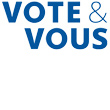 |
Vote et Vous, France launches Voting Advice Application for French Presidential elections
With Vote&Vous, you can compare your positions with those of the candidates for presidential elections in France. #VoteEtVousPR17 |
|||||
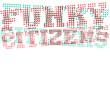 |
FUNKY CITIZENS – An Initiative from Romania
FUNKY CITIZENS builds research-based, data-driven online advocacy tools. These aim to be both educational and actionable, encouraging young citizens to engage in accountability and government responsibility initiatives where they’ll be able to see an impact. By aggregating and educating youth around this series of tools, the initiators are seeking to build up the understanding and human capital necessary to influence more participatory, responsible and transparent democracy in Romania. Ultimately, the project’s goal is to empower citizens in its user-base to influence public sector reform. |
|||||
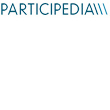 |
Participedia – Strengthen Democracy through Shared Knowledge
Participedia harnesses the power of collaboration to respond to a recent global phenomenon: the rapid development of experiments in new forms of participatory politics and governance around the world. The platform provides a low-cost, easy way for researchers and practitioners from across the globe to catalogue and compare the performance of participatory political processes. Participedia is aimed at practitioners, activists, government officials, journalists, social scientists, policy analysts, democratic theorists and other scholars, as well as educators and students. |
|||||
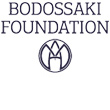 |
Bodossaki Foundation
Established in 1972, the Bodossaki Foundation is one of the most respected privately owned public-benefit organizations in Greece. The foundation is currently active in four main strategic pillars in the country: education, health, environmental protection and empowering civil society. |
|||||
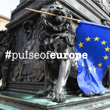 |
#PulseofEurope
The activists of #PULSEOFEUROPE meet up every Sunday in cities across Europe. At the root of the movement is the idea that in the EU, a clear majority still believes in the fundamental idea of the Union – as well as its potential for reform and development – and doesn’t want to sacrifice the European dream to nationalist tendencies. Its members are standing up and speaking out, and #PULSEOFEUROPE is making a positive, pro-European gesture in response to current nationalist trends! |
|||||
| POLITICS & POLICIES & CITIZENSHIP EDUCATION | ||||||
|
Central European University in Budapest under attack
The members of the Academic Advisory Board of the CEU Institute for Advanced Study have written a protest letter to the Hungarian Minister of Human Capacities Zoltán Balog. |
||||||
|
European Commission 2017 EU Citizenship Report
The European Commission has now published its third EU Citizenship Report, which takes stock of progress since 2014 and presents further actions to ensure that citizens can fully enjoy their rights when working, travelling, studying or participating in elections. |
||||||
|
Social Policy in the European Union: State of Play 2016
The 17th edition of ‘Social Policy in the European Union: State of Play’ looks at recent EU and national social policymaking trends. Contributions from leading scholars highlight that ‘crisis’ was the word that best characterized 2016, when tensions in the EU reached hitherto unprecedented levels. In the course of the year, the migration crisis revealed the limits of the bloc’s decision-making capacities, economic weakness showed no signs of letting up, austerity policies and the badly handled socioeconomic Greek crisis turned populations against the EU – just when it needs to come together to respond to the Brexit vote. |
||||||
|
Prepare for a New Europe
The paper "Prepare for a New Europe" has been published by the Warsaw-based Stefan Batory Foundation. In the analysis, the author shows how three fundamental paradigms of EU integration have changed, and what implications this process has for both Poland and the EU. |
||||||
|
Mapping Transition in Eastern Europe
Presented by the Transition Dialogue-Network, “Mapping Transition in Eastern Europe” is a book full of people's transition experiences and lessons for civic education from six countries: There was the reunification of Germany, a war in Croatia, uncertainty in Bulgaria, a transformation reset in Ukraine, a long communist shadow in Romania, and an authoritarian setback in Russia. But what do personal stories and personal experiences of transition reveal for practitioners of civic education? |
||||||
| CALLS | ||||||
|
Call for Polish and Norwegian Students
POLIN Museum of History of the Polish Jews and The European Wergeland Centre (EWC) offer a 3-day workshop in Norway for teams of students (16-19 years old) and teachers from upper secondary schools in Poland and Norway. The seminar is followed by student-led activities at school. Deadline for applications is May 15, 2017. |
||||||
| EVENTS | ||||||
|
What happened to France?
Vienna (Austria), 11-12 May 2017 |
||||||
|
European Development Days
Brussels (Belgium), 7-8 June 2017 |
||||||
|
Learning to live together – a shared commitment? Conference on the Future of Citizenship and Human Rights Education in Europe
Strasbourg (France), 20-22 June 2017 |
||||||
|
You can find more current publications on citizenship education in Europe at the NECE website. |
||||||